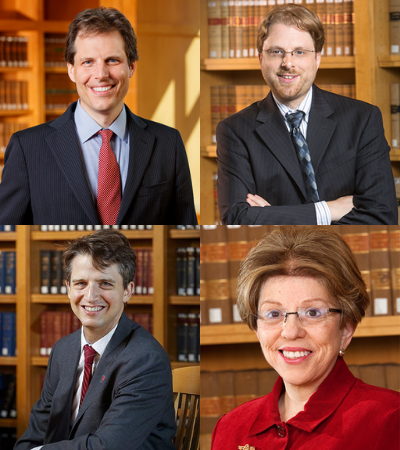
ACS and Federalist Society Hosts Constitution Day Discussion
17 Sep 2021
On September 17, the Nebraska College of Law chapters of the American Constitution Society and the Federalist Society hosted a panel discussion featuring Professors Eric Berger, Gus Hurwitz, Kyle Langvardt & Jo Potuto.
"Supreme Court Roundup" discussed some of the most important cases from the most recent Supreme Court term.

Nebraska Space Law Week Marks 14th Year of Annual Space Law Conference
14 Sep 2021
Nebraska Law’s Space, Cyber, and Telecommunications Law Program hosts numerous conferences and events every year, including an annual space law conference in Washington, D.C. that features faculty-authored white papers, invite-only government-industry round-tables, public sessions, and partnerships with leading think tanks and agencies. The program is pleased to continue its fourteen-year tradition of hosting an annual space law conference in the fall, happening virtually September 27 – October 1.
The week features daily substantive webinars, open to all, on modern space law challenges. Participants can register for as many sessions as interest them and sessions are free.
Panels include:
- Commercial Space: What’s Next for Regulatory Reform?
- The American Society of International Law Space Law Interest Group Presents the World Speaks Space Series: Africa
- Spectrum and Space Activities: Future Challenges and Opportunities
- Artemis Accords: Expanding and Implementing the Accords & Their Impact on Space Law
- "What About Everyone Else?" The Law of Armed Conflict and Neutrality and Proportionality in Space: Protecting Neutrals and Civilians in Space
Registration is available at: law.unl.edu/dc-conferences
While the program looks forward to returning to in person events in fall 2022, the virtual model allows important conversations on the challenges humanity faces in space to be accessible to individuals across the world, who may not have been able to join the conference in D.C. The Space, Cyber, and Telecommunications Law program is dedicated to furthering the conversation, even in the face of unprecedented times, at no charge.
Nebraska Space Law Week is Co-Sponsored by the American Society of International Law Space Law Interest Group and the American Branch of the International Law Association.
Since 2008, Nebraska Law has offered degree tracks in space, cyber, and telecommunications law. Graduates of the program have gone on to careers working for private companies like SpaceX; for civilian agencies like the NASA; for military operations such as the U.S. Cyber Command and Space Operations; as well as for think tanks and law firms. Questions about the program or Space Law Week may be directed to the program’s coordinator Joshua Redwine.
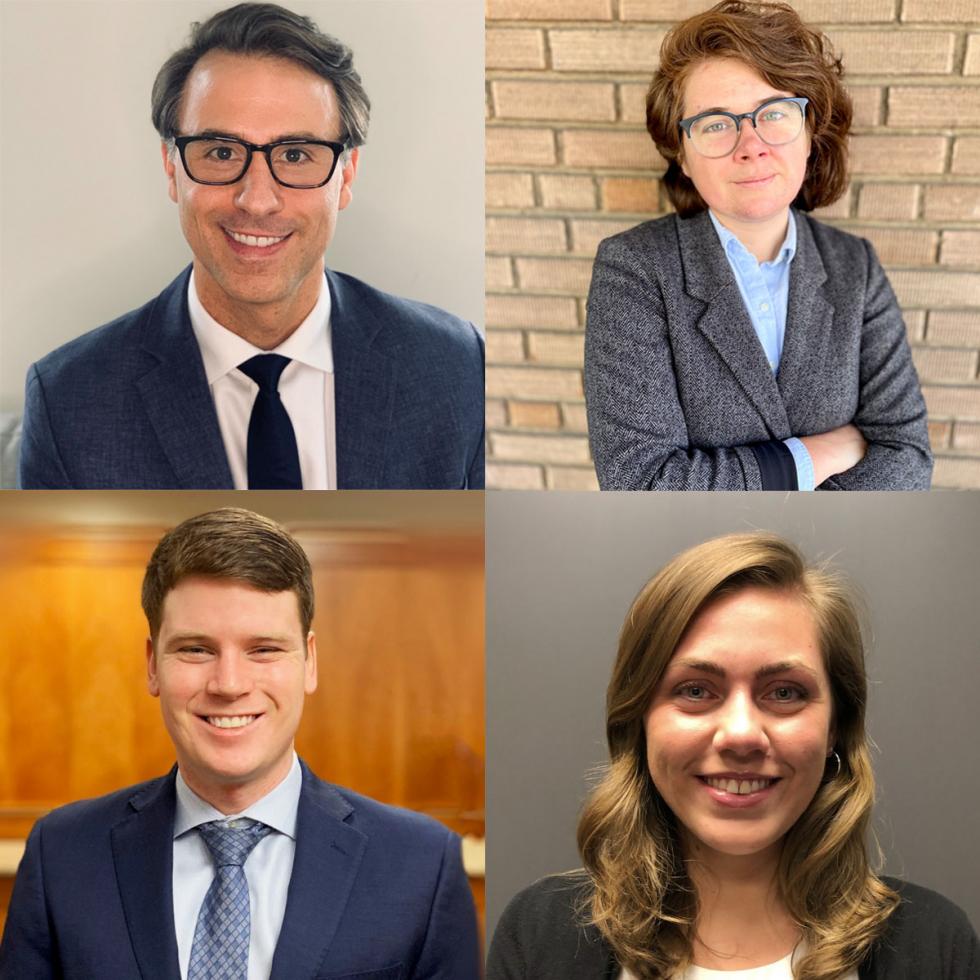
Student Papers Win Awards in Nebraska Governance and Technology Center Competition
13 Sep 2021
The Nebraska Governance and Technology Center (NGTC), based in the Nebraska College of Law in collaboration with the Nebraska Colleges of Business, Journalism and Mass Communications, and Engineering, is pleased to announce the winners of its inaugural student paper competition.
The competition received over 20 quality submissions, making these contributions impressive standouts!
First Place, to be printed in Volume 100:4 of the Nebraska Law Review, Algorithmic Decision-making and Corporate Risk: Toward Transparency Through Corporate Disclosures, Kevin Kuhn, Georgetown University Law Center
Second Place, The "Prime Factors" of Quantum Cryptography Regulation, Lindsay Rand and Theodore Rand, University of New Hampshire Franklin Pierce School of Law
Third Place, Patents as an Avenue for Women's Empowerment: How Contraceptive Innovation has Advanced Gender Equality in the United States, Jennifer Black, Villanova University Charles Widger School of Law
Honorable Mention Fourth and Fifth Place Papers
You Own Your Thoughts: Psychographic Data as Cognitive Property, Tyler Goss, University of San Diego
The Future Is Now: Robots As Surgeons The adoption of surgical safety standards to robotic surgery, Kanika Kalra and Manmeet Kaur Sareen, University of Cambridge
The prompt for papers was “how technology regulates.” Technology regulates human conduct in many ways. Technologies can be designed to enable or prohibit certain types of activity directly. They may be used instrumentally to monitor or control activity. Digital platforms’ content moderation decisions have effects on our information economy and democratic policy. Changing technologies can support, undermine, or confound existing regulations and regulatory norms, for instance by decentralizing currency or eroding the distinction between longstanding categories such as employees and independent contractors. This competition is for papers on topics such as these.
Launched in 2020, the Nebraska Governance and Technology Center is focused on the changing relationship between law and technology and its effects on society. The center is housed in the College of Law and includes an interdisciplinary team of students, faculty and researchers engaging in study with the Colleges of Business, Engineering, and Journalism and Mass Communications. Learn more about the center.
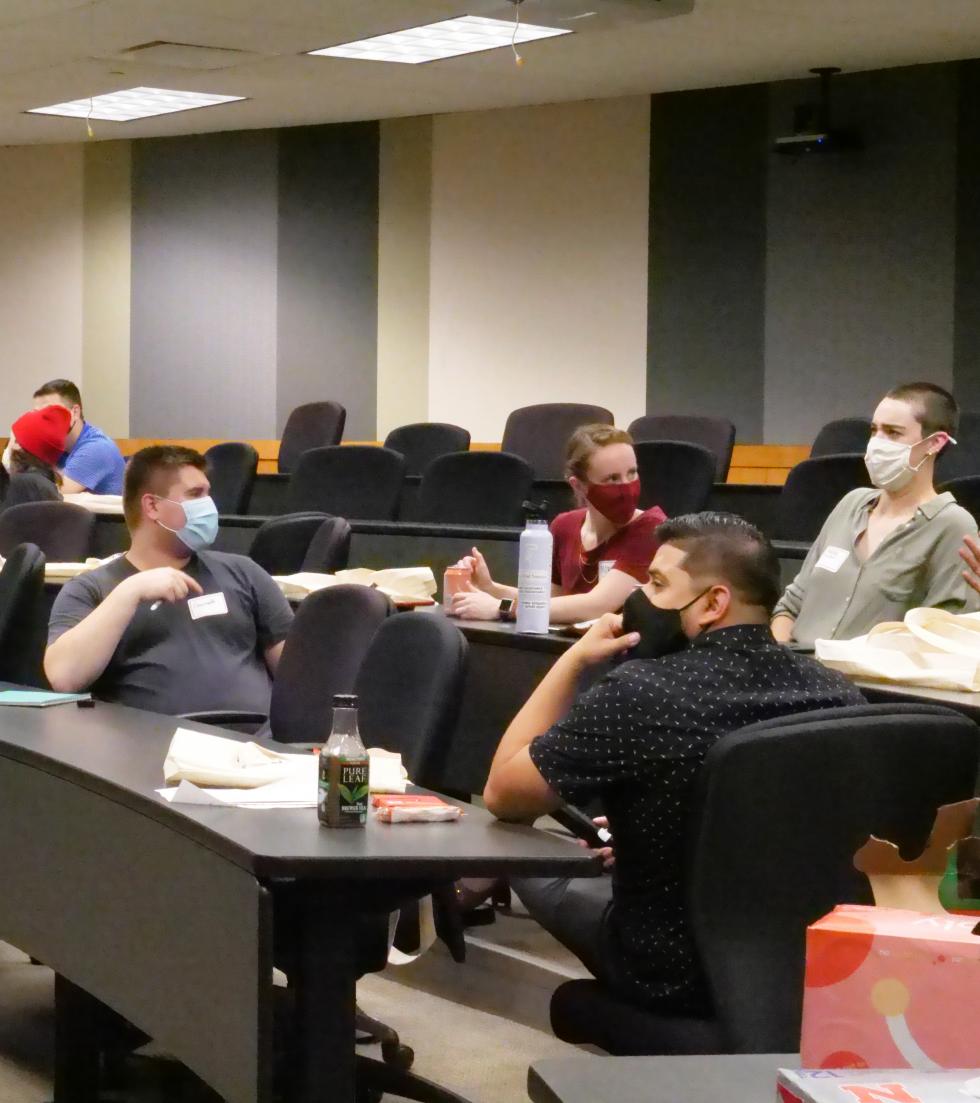
Nebraska Governance and Technology Center announces student fellows
13 Sep 2021
The Nebraska Governance and Technology Center has announced its second class of student fellows, with students from graduate programs across the University of Nebraska–Lincoln.
Members of the class come from a diverse range of programs — from integrated media communications and computer engineering to law — but share an interest in exploring the pressing issues technology fosters within society from an interdisciplinary perspective.
Each student fellow will join a multidisciplinary team tasked with investigating a technology-related topic of their choosing over the course of the academic year. Led by the center’s research associate, Neil Rutledge, their fall research will culminate in a group project that leverages their team’s diverse talents to produce a project emphasizing creativity and drawing on the group’s unique skill set. In the spring, each group will turn its attention to developing and producing an episode of the center’s podcast, Tech Refactored, delivering insights into the topic they’ve been researching during the academic year.
In addition to their research and project development, student fellows will participate in select events with the center’s faculty fellows and will have the opportunity to attend lectures from leading experts in their fields. A further goal of the program is to create a community of scholars that could provide opportunities for future collaboration; to that end, the student fellows program also includes social events throughout the year.
The 2021-22 Nebraska Governance and Technology Center student fellows, with their college(s), are:
- Morgan Armstrong — Law
- Ece Baskol — Business
- Bogac Canbaz — Engineering
- Alicia Christensen — Law
- Christopher Clark — Engineering, Arts and Sciences
- Joshua Alexander Lee — Law
- Mei Fong Looi — Business
- Izuchukwu Mbaraonye — Business
- David Ornelas — Journalism and Mass Communications
- Jeffrey Owusu-Ansah — Law
- Paige Ross — Law
- Garrett Wirka — Engineering
The group held its first session Sept. 2 at the College of Law.
Launched in 2020, the Nebraska Governance and Technology Center is focused on the changing relationship between law and technology and its effects on society. The center is housed in the College of Law and includes an interdisciplinary team of students, faculty and researchers engaging in study with the colleges of Business, Engineering, and Journalism and Mass Communications. For more information, click here or contact Elsbeth Magilton, executive director, at elsbeth@unl.edu.
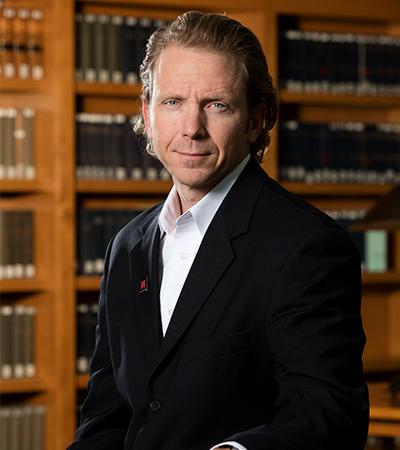
Schutz's Article Published in Pacific Law Review
13 Sep 2021
Professor Schutz published Agricultural Discharges Under the CWA: Old Questions and New Insights, in the Pacific Law Review, as part of a symposium on agricultural issues.
The article argues that County of Maui v. Hawaii Wildlife Fund, 140 S. Ct. 1462 (2020), exposes a question that has long plagued efforts at regulating agricultural pollution: the necessary connection under the Clean Water Act between the origin of pollutants and the enigmatic "waters of the United States" embodied in the term "discharge." This connection has been a fighting issue in CWA cases since at least 1994, and represents one of three areas in which the scope of the CWA is disputed (along with "waters of the United States" and "point sources" of pollution). The Court's attention to the matter in County of Maui may clarify the murky doctrine that has developed in cases involving concentrated animal feeding operations and agricultural discharges more generally. It may also provide some clarity to the concepts of nonpoint-source pollution and agricultural-stormwater-discharge exception. All of this may help improve water quality on agricultural landscapes.
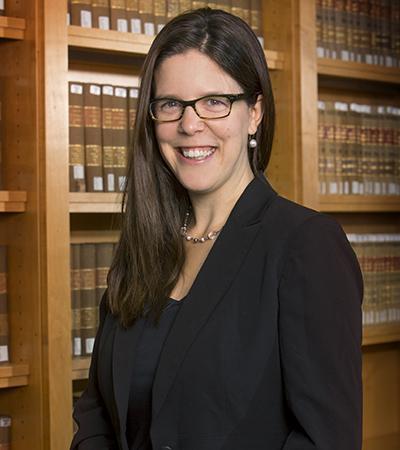
Shoemaker's Article Published in Michigan Law Review
07 Sep 2021
Professor Jessica Shoemaker’s article Fee Simple Failures: Rural Landscapes and Race was published in the Michigan Law Review.
The article addresses the evolution of agricultural land ownership in the United States, with a focus on how intentional racial exclusion in historic property systems contributes to the current condition of 98 percent of agricultural land still being owned by people who are white. But it also explores how land ownership regimes intended to create widely dispersed ownership of agrarian land have instead resulted in increasingly dynastic, absentee, and concentrated land ownership. Professor Shoemaker argues that these land patterns result from intentional property law choices (that can be critiqued and changed) and that this foundation is at the root of the overlapping crises of racial injustice, climate change, and rural decline.
The article was also digested by The Rural Review, an online journal produced in conjunction with the Rural Reconciliation Project.
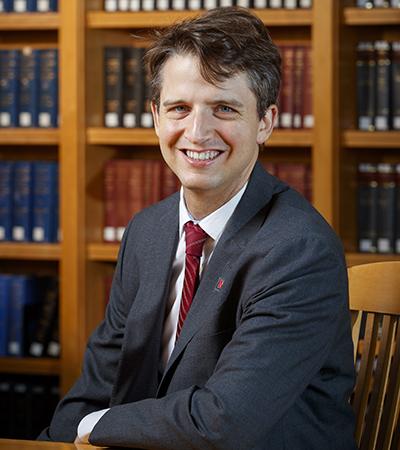
Langvardt’s Article Published in Journal of Free Speech Law
26 Aug 2021
Professor Kyle Langvardt’s article Can the First Amendment Scale? has been published by the Journal of Free Speech Law, a peer-edited law journal.
The article is part of a symposium on free speech and social media platform regulation. A brief synopsis is below:
American judges today preside over a laissez-faire regime of “editorial discretion” for private media entities. That approach promotes freedom of speech when applied to entities such as newspapers that handle content at a relatively small scale. But applied to entities such as Facebook that handle millions of items of third-party content a day, the laissez-faire approach threatens free speech by concentrating unchecked censorial power in the hands of a few companies. That outcome is probably avoidable, but only at the price of difficult transformations in First Amendment law that seem to carry their own significant risks. These changes will include a weakening in the editorial concept and a diminished role for the judiciary in defining the public law of free speech.
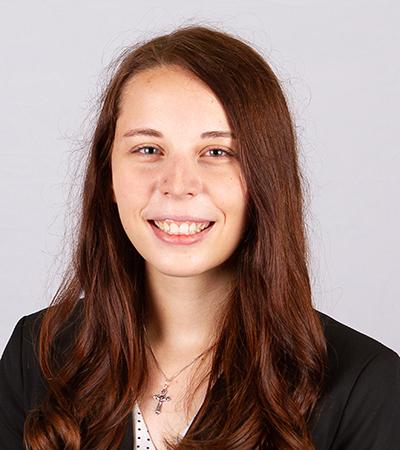
Shanahan Awarded 2021 Animal Legal Defense Fund Scholarship
25 Aug 2021
Kelly Shanahan, ’23, has been awarded an Animal Legal Defense Fund (ALDF) Advancement of Animal Law Scholarship. This award is presented annually to leaders of the ALDF student chapters who have demonstrated a commitment to ALDF’s mission, “to advance the interests and protect the lives of animals through the legal system.”
In 2020-2021, Shanahan was the vice president of the Nebraska Student Animal Legal Defense Fund and is currently the chapter’s president. This summer, Shanahan was an intern for the Earth Law Center, and she is working with the Animal Welfare Institute’s farmed animal program this fall.
Shanahan’s interest in animal law began after work for the University of Minnesota’s raptor center as a wildlife educator and naturalist. After working with birds protected by the Migratory Bird Treaty Act, Endangered Species Act, and the Bald and Golden Eagle Protection Act, she became passionate about wildlife conservation and environmental protection.
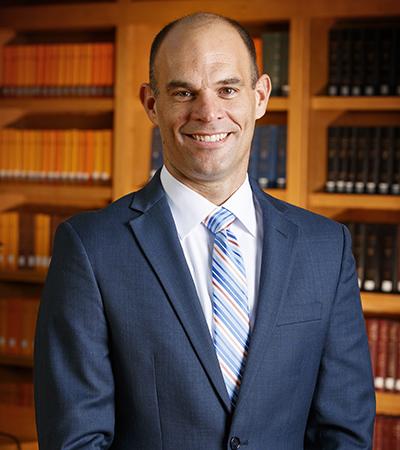
Marshfield’s Article Accepted by University of Pennsylvania Law Review
24 Aug 2021
Professor Jonathan Marshfield’s article America’s Misunderstood Constitutional Right was accepted by the University of Pennsylvania Law Review.
The abstract for the article is below:
In contemporary rights jurisprudence and theory, the Fourteenth Amendment and the Federal Bill of Rights are most frequently conceptualized as bulwarks against majoritarian abuses. From Brown v. Board of Education to Obergefell v. Hodges and even District of Columbia v. Heller, federal rights are primarily understood as enforceable legal constraints on popular majorities (especially intra-state majorities). Viewed through this lens, state constitutional rights are often dismissed as fundamentally dysfunctional because they are too easily amended through majoritarian political processes to constrain popular majorities. After all, what good is a state constitutional right to marriage equality, for example, if it can be quickly eliminated by a majority vote?
This article provides the first dedicated assessment of this perspective on state constitutional rights by drawing on a largely neglected set of sources: the debates of all known state constitutional conventions where state bills of rights were forged and reformed (105 conventions from 1818 to 1984). These sources suggest that prevailing critiques of state constitutional rights are misguided and limit our understanding of American public law. Although the Federal Bill of Rights may function as an important constraint on popular majorities, state bills of rights serve a different purpose. They were created primarily as a device for democratic majorities to control wayward government officials and representatives. State bills of rights were not designed to operate as higher law beyond the reach of legitimate democratic majorities. To the contrary, they were built to function as higher law beyond the reach of government, but always within the immediate reach of the people.
Excavating this perspective on state bills of rights not only places them in their proper historical and theoretical context, but it also disentangles them from their federal counterparts and enables more sophisticated inquiries into how constitutional rights function within our federal system. These findings also have timely implications for federal and state rights jurisprudence. With the Supreme Court now likely to reevaluate the breadth of certain federal protections – perhaps in favor of giving state courts more space to develop state constitutional rights – it is important that we have clarity regarding the deep structure of state constitutional rights. My findings show that despite well-intentioned exhortations from prominent judges and scholars, state constitutional rights are not built to provide an alternative corpus of meaningful counter-majoritarian protections – at least not in the same way as federal constitutional rights.
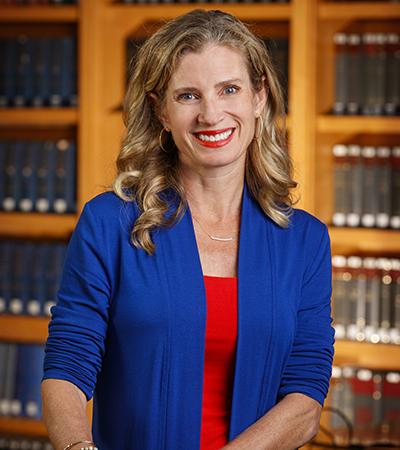
Grant Will Expand Access to Attorneys in Rural Areas
17 Aug 2021
The Children’s Justice Attorney Education program, a partnership of the Nebraska College of Law and the Center on Children, Families and the Law, will increase the availability and accessibility of court-appointed and juvenile county attorneys thanks to a grant from the Aviv Foundation. The CJAE will support juvenile attorneys to better serve rural children and families, including low-income, Latinx and Indigenous populations.
CJAE was one of two Nebraska projects chosen from the more than 389 proposals submitted for the Springboard Prize for Child Welfare.
“The CJAE will build on the proven practices of the Children’s Justice Clinic,” said Michelle Paxton, director of the clinic and the CJAE. “We plan to provide rural attorneys extensive education in federal and state child welfare laws, along with invaluable information and insights into the subjects necessary to become strong advocates.”
Attorneys participating in the program will receive training in trauma and child development, substance use, domestic violence, complex family dynamics and the Indian Child Welfare Act. During the eight-month program, attorneys will participate in expert case consultation and reflective practice, in which participants reflect on personal biases, thoughts and feelings about cases and use this expanded awareness to improve their advocacy.
“CCFL is equipped with a team of experts that will provide guidance to CJAE participants throughout the program,” said Eve Brank, CCFL director and professor of psychology. “CCFL’s psychologists, attorneys, child welfare practitioners, social workers, mental health practitioners and former state wards will consult with the program’s participants to allow rural attorneys an opportunity to address complex legal questions in their cases while integrating social and psychological factors to increase their child advocacy skills for underrepresented communities.”
The CJAE is the second project in which the College of Law and CCFL have partnered. The first partnership, the Children’s Justice Clinic, was established in 2017 to train students to serve as guardians ad litem in Lancaster County Juvenile Court.
“We are thrilled to once again be partnering with CCFL to improve the quality of child welfare representation in Nebraska,” said Richard Moberly, dean of the College of Law. “Our mission to develop inclusive leaders goes beyond our current students. The CJAE program reaches into rural communities and helps develop the leaders who are serving the state’s most vulnerable children.”
The innovative CJAE program comes as local, state and federal entities are recognizing the life-changing impact of attorney education in child welfare. In a 2020 survey by Attorney Services, Nebraska judges reported a need for highly educated attorneys, with specialized training in child welfare, to serve in juvenile court. This is particularly true in rural areas. The CJAE program hopes to change that by providing rural attorneys with the knowledge and skills to advocate effectively in juvenile court, and to increase interest and commitment among rural attorneys to work in child welfare.
Attorneys participating in the eight-month CJAE program will receive a stipend at the completion of the program.
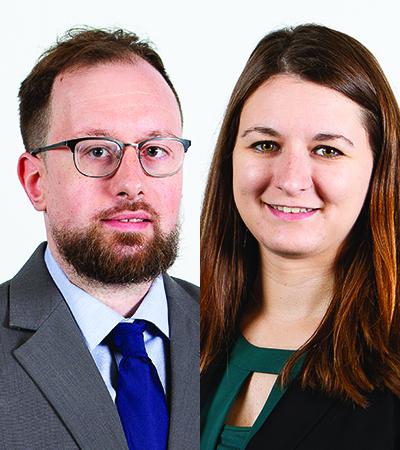
Dugger, Huson Recognized as Outstanding Law Student Advocates by Nebraska State Bar Association
17 Aug 2021
Alan Dugger, ’22, and Haley Huson, ’22, were recognized with the Nebraska State Bar Association (NSBA) Tenant Assistance Project Outstanding Law Student Advocate Award. This award recognizes law students each semester who have made a significant contribution to the Tenant Assistance Project (TAP) and exceed expectations in their effort to support the program and contribute to its success.
Alan Dugger has been an integral contributor to TAP since its early stages in summer 2020 while completing his clerkship with the Lincoln Commission on Human Rights. He continued to contribute through his clerkship during the academic year and as a pro bono law student this summer. Alan’s contributions have been invaluable and his dedication to TAP has been unrelenting.
Haley Huson worked as Professor Ryan Sullivan’s research assistant and provided support in tracking past and on-going eviction cases, including the creation of over 200+ eviction defense packets which are critical to TAP volunteers and attorneys. The CDC moratorium was extended twice during Haley’s tenure, resulting in a massive influx in continued cases for which Haley took responsibility of tracking and prepping.
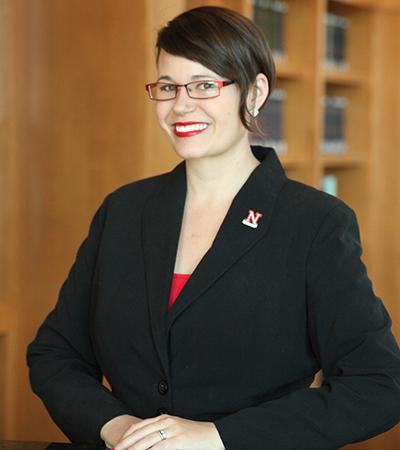
Magilton Part of Research Team to Receive NSRI Grant Funding
13 Aug 2021
University of Nebraska Omaha Assistant Political Science Professor Michelle Black is leading a research team focused on multi-actor deterrence analysis. Elsbeth Magilton, ’11, the executive director of the Nebraska Governance and Technology Center and the Space, Cyber, and Telecommunications Law program is a contributing researcher.
The National Strategic Research Institute (NSRI) at the University of Nebraska has awarded the project $25,000 as part of its inaugural independent research and development (IRAD) funding.
Project description:
The multi-actor deterrence analysis methodology was developed and tested during the project, “Enabling Coherent Deterrence – A Multi-Actor Approach (2019-2020)” funded through NSRI by the North Atlantic Treaty Organization (NATO).
Through NSRI IRAD funding, the approved and tested methodology will be updated based on feedback from NATO and additional interdisciplinary research. With a focus on automation to increase efficiency, additional innovative and complex scenarios will be developed to further test the methodology and increase the speed of analysis.
The long-term objective is to offer a novel and comprehensive framework and methodology to aid U.S. deterrence practitioners, potentially allowing U.S. agencies to integrate decision calculi and deterrence objectives of multiple non-state and state actors.
Extended project details for all projects being funded is available at https://nsri.nebraska.edu/irad/irad2021.
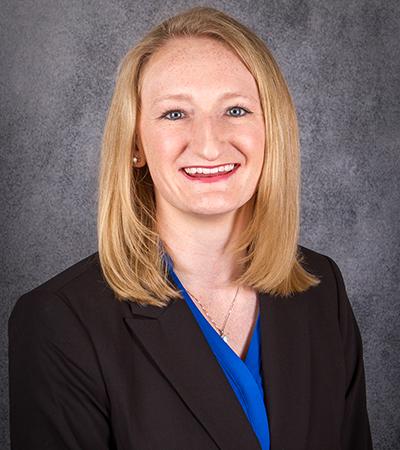
Sonnenfeld Named NSBA Rise Award Recipient
09 Aug 2021
Amy Sonnenfeld, ’21, has been named the Nebraska State Bar Association (NSBA) 2021 Rise Award Recipient. The Rise Award is given to a law student from each of Nebraska’s law schools for their exemplary dedications to, and contributions in support of, programs sponsored by the Nebraska Lawyers Foundation throughout their law school career.
Sonnenfeld was nominated by Professor Ryan Sullivan for her contributions to the Tenants Assistance Project (TAP) and her contributions to the Volunteer Lawyers Project’s Lawyers in the City program.
Sonnenfeld has been a vital contributor to TAP since May of 2020. She first assisted through the College’s Civil Clinic, but continued to volunteer following that experience. As a teaching assistant, Sonnenfeld contributed greatly the TAP program, supporting law students in their case analysis and preparation for eviction hearings, while still taking on a few cases herself. She continued to volunteer for TAP through the College’s holiday break before accepting an externship with VLP to continue her work. In her extern role, Sonnenfeld assisted in facilitating TAP in Lincoln, both behind the scenes and at the courthouse.
In addition to her work with TAP, Sonnenfeld volunteered for the Lawyer’s in the City event. As a 2L she was unable to provide direct legal assistance, but instead assisted in conducting intake interviews and performing other critical tasks to ensure that every individual was provided services.
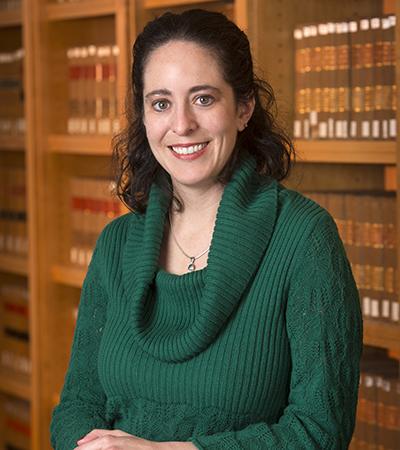
Blankley and Votruba Invited to Ohio State Symposium
06 Aug 2021
Professor Kristen Blankley and Assistant Professor of Psychology Ashley Votruba have been invited to present at a 2022 symposium hosted by Ohio State’s Divided Community Project, in conjunction with Stanford Law School’s Gould Center for Conflict Resolution, the Harvard Negotiation and Mediation Clinical Program, and the Ohio State Journal of Dispute Resolution. They will be presenting on the topic of “Discussing Race in Rural and Non-Diverse Communities” for the symposium focused on Collaborative Efforts on Race and Race Equity.
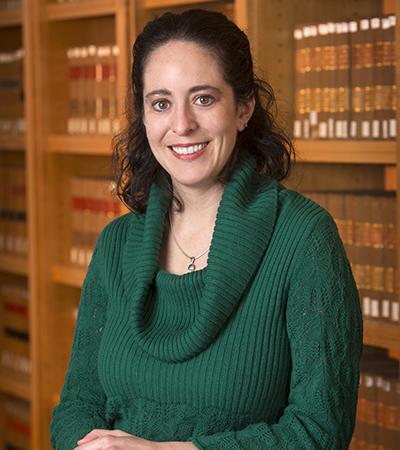
Blankley Contributes to Mediation Guide
30 Jul 2021
Professor Kristen M. Blankley contributed the chapter Evaluating Ethically in the newly released book Mediation Ethics: A Practitioner’s Guide, published by ABA Publishing and edited by Omer Shapira. Professor Blankley’s chapter considers ethical implications for the practice of giving evaluations in mediation.
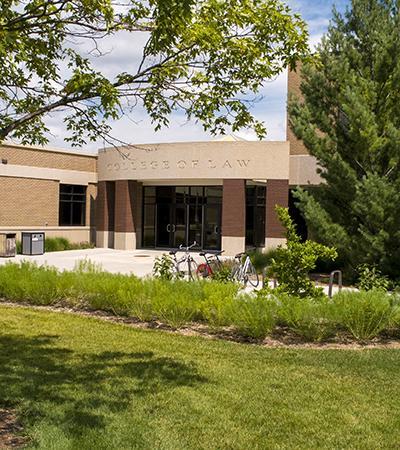
Dean's Message to Our Community
22 Jul 2021
Dear College of Law Community,
You may have heard about the proposed resolution to the Board of Regents regarding critical race theory. University President Ted Carter and the four Chancellors of NU’s campuses have released a related statement that I fully support. It is their role to work with the Board of Regents on behalf of the University, so I will not say anything here specifically about the proposed resolution and will rely on our university leadership to appropriately protect academic freedom and UNL’s commitment to diversity.
That said, I do want to speak to broader concerns that have been raised to me directly from members of the law school community. In doing so, I must emphasize that the Nebraska Law faculty is committed to teaching critical thought, analysis, and reasoning. These skills are foundational to legal education and effective lawyering, and in my view they cannot be taught in ways that ignore considerations of race, justice, and equality.
Examining theories and arguments from all angles - identifying their strengths and weaknesses - happens in each of our classrooms and will continue to happen in each of our classrooms every day. We will continue to discuss and debate our system of laws and the best ways to interpret those laws in light of our history and the impact of that history on today’s world. It is only through these types of rigorous exchanges that we will develop leaders who are truly inclusive and who fulfill our commitment to advancing justice.
I hope your summer is going well. I am very much looking forward to your return in a few weeks. Until then, please take care and be well.
Kind regards,
Richard Moberly
Dean
Richard C. & Catherine S. Schmoker Professor of Law
University of Nebraska College of Law
P.O. Box 830902
Lincoln, NE 68583-0902
402/472-2161
moberly@unl.edu
Twitter: @Richard_Moberly
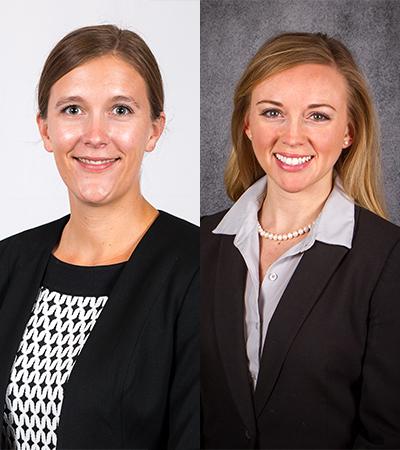
Foust and Meier Receive Koley Jessen Entrepreneurship Award
20 Jul 2021
Alyssa Foust, ’21, and Sarah Meier, ’21, are the recipients of the 2020-21 Koley Jessen Entrepreneurship Award.
The annual award recognizes students participating in the Weibling Entrepreneurship Clinic for demonstrating exceptional legal skills, providing outstanding service to clients, and furthering the mission of the Clinic.
During their time in the Entrepreneurship Clinic, Foust and Meier served their clients with diligence and distinction, understanding client goals and addressing challenges with intensity and professionalism.
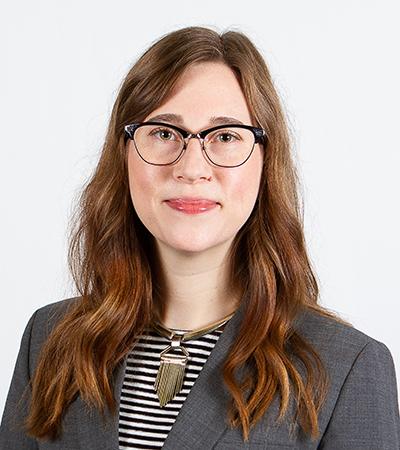
Dick Awarded 2021 Ms. JD Public Interest Scholarship
19 Jul 2021
Rachel Tomlinson Dick, ’22, has been awarded a 2021 Ms. JD Public Interest Scholarship.
The Ms. JD Public Interest Scholarship program provides a stipend to law students as they pursue careers in public interest. Program participants will work at public interest organizations the summer between their second and third years of law school.
This summer Dick is working as a law clerk at the Nebraska Appleseed Center for Law in the Public Interest. Under the supervision of Nebraska Appleseed’s legal director, Robbie McEwen, ’11, she is conducting research and analysis to support the Center’s future litigation work and assists with current litigation as needed.
Following law school, Dick, who is pursuing concentrations in both constitutional law and litigation, hopes to focus on civil rights litigation and policy work to help promote greater equity in her home state of Nebraska. She is particularly passionate about addressing LGBTQIA+ rights, racial justice, mass incarceration and housing issues.
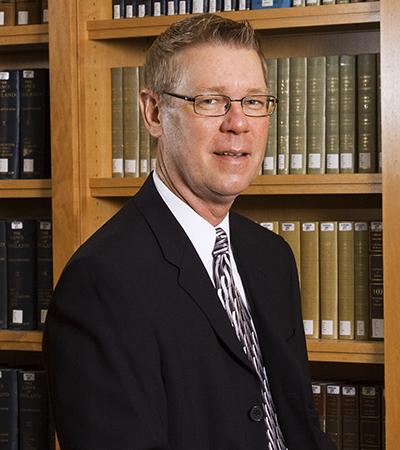
Ruser Releases Guide for Criminal Law Practitioners
19 Jul 2021
Professor Kevin Ruser published the 2021 edition of his book, The Nebraska Criminal Law Practitioner’s Guide to Representing Non-Citizens in State Court Proceedings. The Guide is designed to help Nebraska criminal law practitioners meet their Sixth Amendment obligation to advise their non-citizen clients of the immigration consequences of state criminal proceedings in which they are involved.
The Guide consists of two parts: (1) a 260-page textual discussion of the immigration system and the law governing immigration consequences of criminal proceedings and (2) charts that analyze over 400 Nebraska criminal statutes and municipal ordinances for immigration consequences.
The Guide is available for download and will be updated periodically as new developments occur.
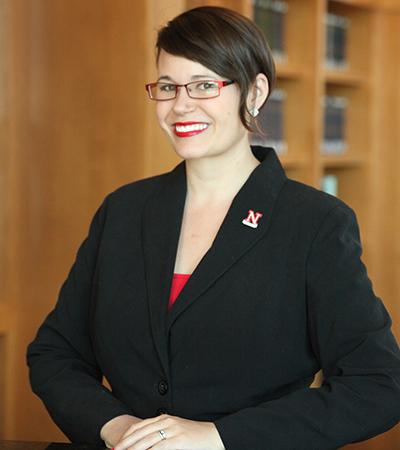
Magilton lectures on military space issues, from Auckland NZ to Offutt Air Force Base
15 Jul 2021